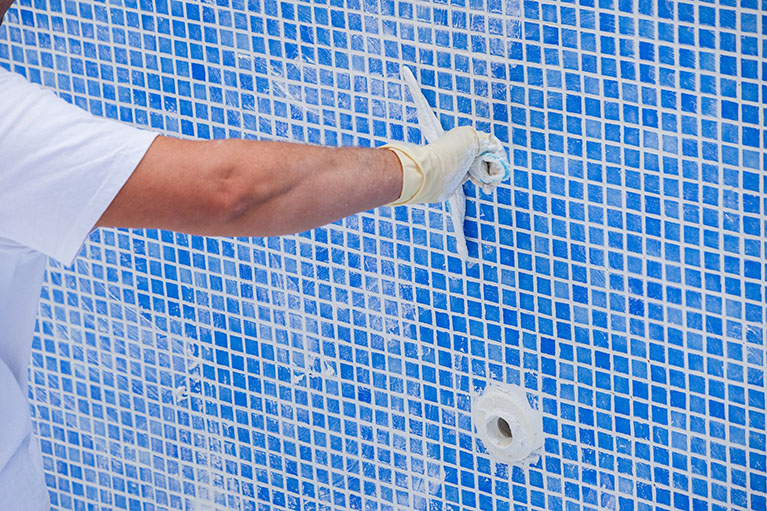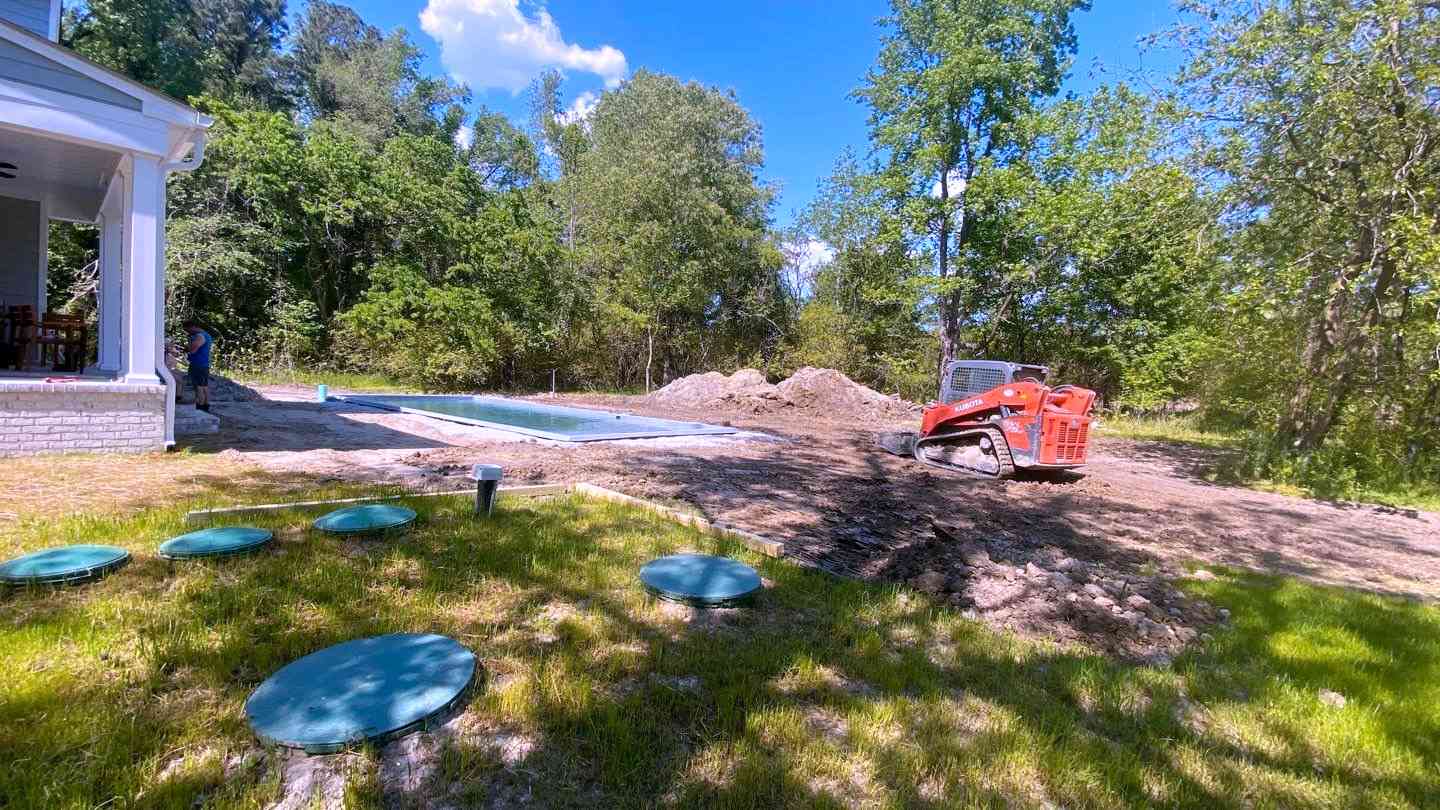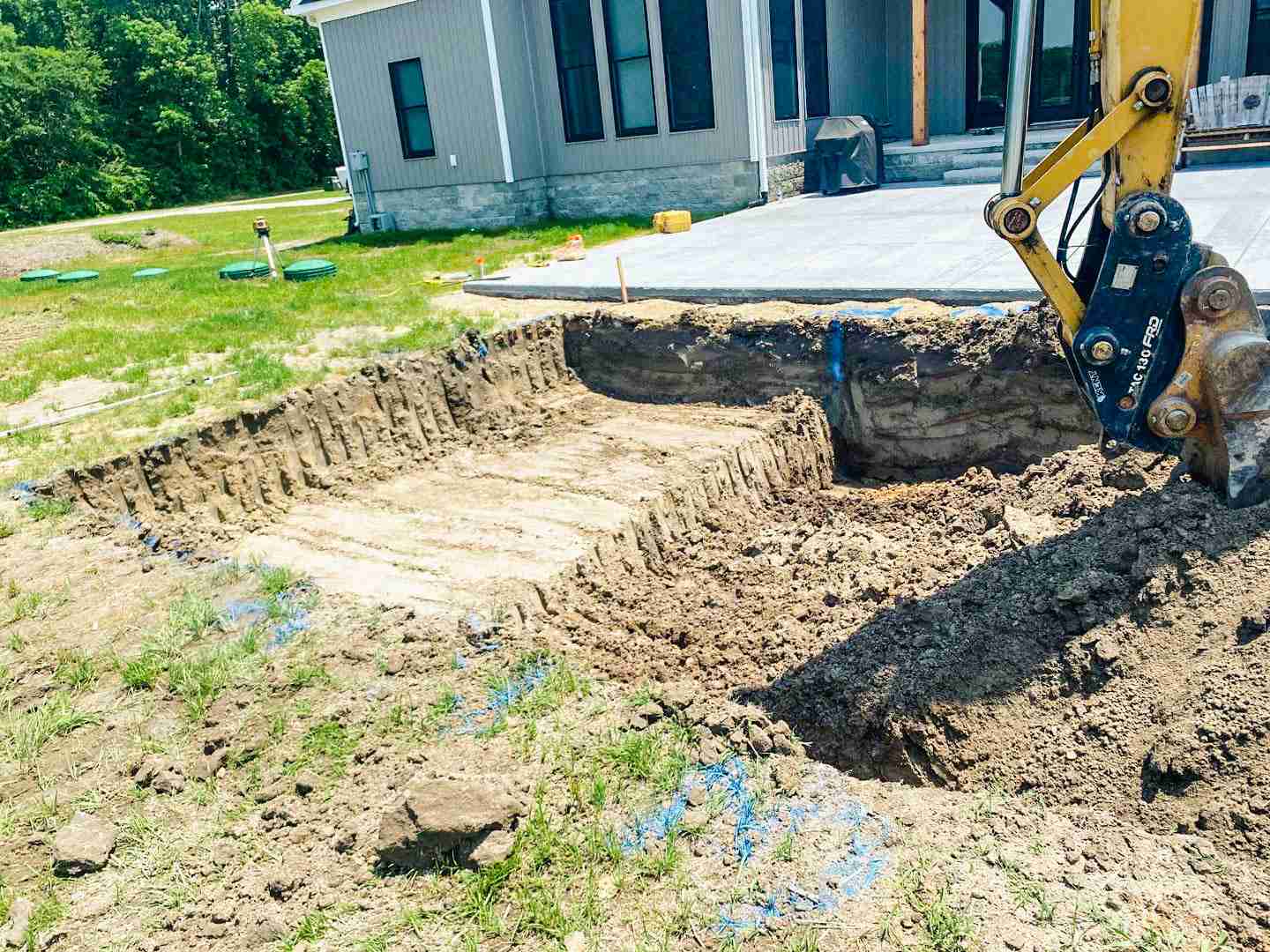
What Happens If You Put Up A Pool Without A Permit?

Are you dreaming of those perfect summer days lounging by your very own pool? It’s a common aspiration for many homeowners, but before getting into the deep end of pool ownership, there’s a crucial aspect you must consider: the pool permit. Yes, Understanding the ins and outs of pool permits can save you from a tidal wave of legal and financial troubles down the line. So, let’s look at what you need to know about pool permits, especially if you’re considering constructing a pool without one.
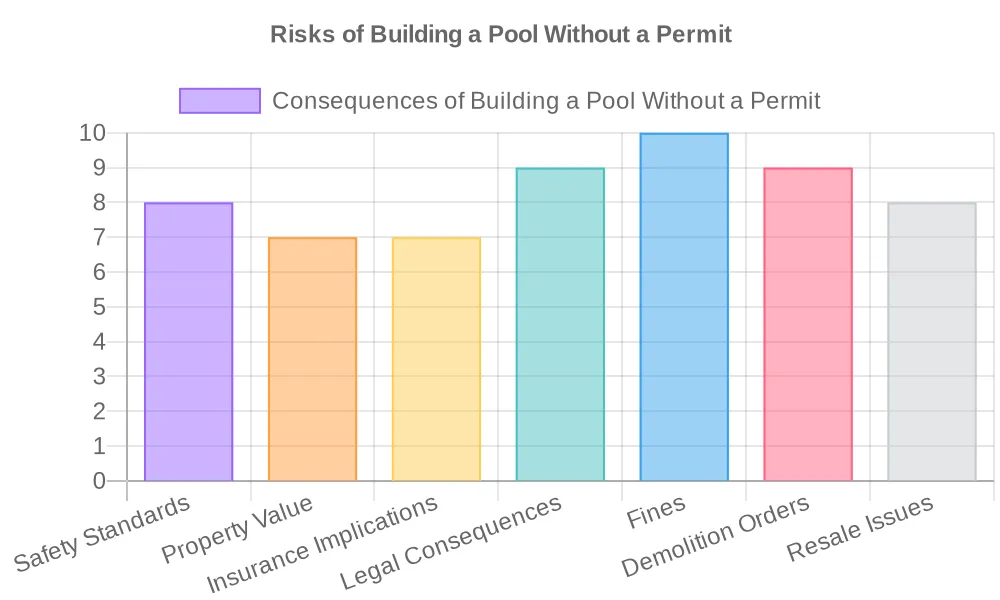
Latest
Categories
The Importance of Pool Permits
Imagine this: You’ve just spent a significant sum on your new pool, envisioning tranquil afternoons and lively pool parties. However, your oasis could quickly turn into a nightmare if you bypass the critical step of obtaining a pool permit. In many states, including Virginia and North Carolina, constructing a pool without a permit isn’t just frowned upon; it’s a violation of local laws and regulations.
Pool permits are not just bureaucratic red tape; they serve several essential purposes:
- Safety Standards: Permits ensure that your pool meets safety standards. This is crucial not only for the well-being of your family but also for any guests you might entertain.
- Property Value: A legally permitted pool can enhance your property value, whereas an unauthorized pool can be a liability, potentially affecting future property sales or refinancing.
- Insurance Implications: Most homeowner’s insurance policies require compliance with local laws. A pool built without a permit might lead to insurance complications, especially if there’s an accident or property damage.
- Legal Consequences: If you build a pool without a permit and are caught, you could face steep fines, and in extreme cases, you might even have to demolish your new pool – a costly and heart-wrenching outcome.
Understanding the Permit Process
Getting a pool permit might seem daunting, but it’s a straightforward process that offers long-term peace of mind. Here’s a simplified guide:
- Research Local Regulations: Pool permit requirements vary depending on your location. It’s essential to check with your local Homeowner’s Association and municipal authority to understand the specific needs of your area.
- Application: The application usually involves submitting plans for your pool, including details like size, location, and safety features. These plans help authorities ensure that your pool doesn’t pose a risk to public safety or infringe on zoning laws.
- Inspections: Part of the permit process may include inspections during and after construction to ensure compliance with safety standards.
- Fees: Yes, there are fees involved, but they are a small price to pay compared to the potential fines for non-compliance.
- Contractor Collaboration: If you’re working with a pool contractor, they can be a valuable resource in navigating the permit process. Experienced contractors, such as PoolForce, are familiar with local requirements and can handle much of the legwork, because of handling a myriad of projects over the years.
The Ripple Effect of Not Having a Pool Permit
Consequences of Skipping the Permit
Constructing a pool without a permit is like swimming in murky waters; you never know when you might get into trouble. The consequences can range from mild to severe, depending on where you live:
- Fines: This is the most immediate consequence. Some homeowners have faced fines up to a staggering $250,000 for not having a pool permit. Even if the fines in your area aren’t as steep, they can still put a significant dent in your wallet.
- Demolition Orders: In extreme cases, you might be ordered to demolish your pool, erasing all the time, effort, and money you invested.
- Insurance Woes: Your dream pool could become a liability. Most insurance companies require that all structures, including pools, comply with local laws. A pool built without a permit might not be covered, leaving you exposed to potential lawsuits or damages.
- Resale Issues: When selling your home, an unpermitted pool can be a deal-breaker or a point of contention, potentially reducing your home’s value or complicating the sale process.
Myth Busting: Common Misconceptions
Let’s clear the water on some common misconceptions about pool permits:
- “It’s just a small pool; I don’t need a permit.” Size doesn’t always matter. In many areas, any pool deeper than 24 inches requires a permit, regardless of its overall dimensions.
- “I’ll just get a permit later if I need one.” Retroactively obtaining a permit can be more complicated and often more expensive than getting one from the start. It’s best to do it right the first time.
- “My contractor will handle everything.” While a reputable contractor will know the ins and outs of the permit process, it’s still your responsibility as the homeowner to ensure all legal requirements are met.
Working with PoolForce
Choosing the Right Partner
Now that you understand the importance of a pool permit, the next step is finding the right partner to bring your pool dreams to fruition. If you’re in Virginia or North Carolina, look no further than PoolForce. Here’s why PoolForce stands out:
- Expertise in Local Regulations: PoolForce is well-versed in the specific requirements of Virginia and North Carolina, ensuring that your pool project adheres to all local laws and regulations.
- Full-Service Approach: From design to excavation, construction, and finishing touches, PoolForce handles every aspect of your pool project, ensuring a seamless and stress-free experience.
- Commitment to Quality: With a track record of excellence and a portfolio of stunning pools, PoolForce is committed to delivering not just a pool, but a lifestyle enhancement.
As you edge closer to realizing your dream of having a pool, there are a few final considerations to keep in mind. Ensuring you have a permit is just the beginning. Here’s what else you need to know:
- Design Planning: Work with PoolForce to create a design that not only meets your aesthetic and functional needs but also complies with local zoning and safety regulations.
- Budgeting: Understand all the costs involved, including construction, permits, and future maintenance. PoolForce can provide a detailed quote to help you plan your budget effectively.
- Long-term Maintenance: Owning a pool is a commitment. Discuss maintenance requirements with PoolForce to ensure your pool remains a safe and enjoyable space for years to come.
- Community Guidelines: If you live in a community with an HOA, it’s crucial to ensure your pool design adheres to any community-specific rules or guidelines.
Taking the Next Step
Don’t let the complexities of pool construction dampen your spirits. With PoolForce, you’re not just building a pool; you’re creating a haven for relaxation and entertainment. Whether you’re in Virginia or North Carolina, PoolForce is your go-to partner for a hassle-free pool construction experience. Their expertise in local regulations and commitment to quality craftsmanship means your pool project is in safe hands.
Remember, a well-planned pool is more than just a luxury; it’s an investment in your property and lifestyle. Contact PoolForce today to start your journey towards owning the perfect pool. And if you’re in Virginia, be sure to check out their detailed guide on Pool Construction Requirements in Virginia for even more insights.
Latest
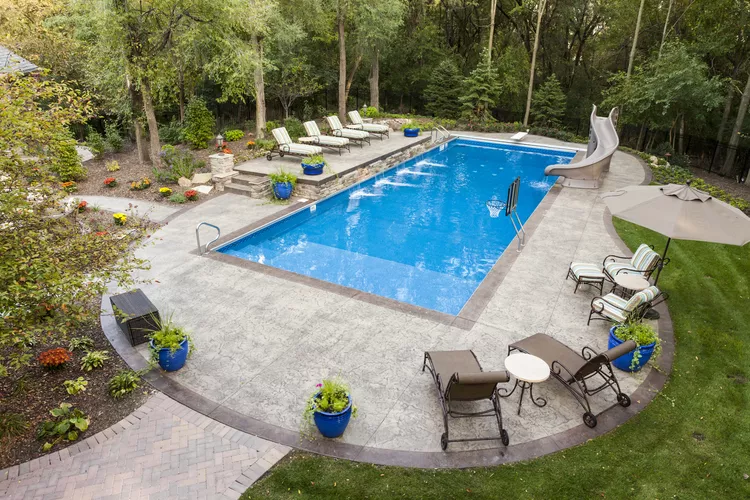
Pool Coping 101: The Ultimate Guide For Pool Enthusiasts

Everything You Need to Know About Infinity Swimming Pools
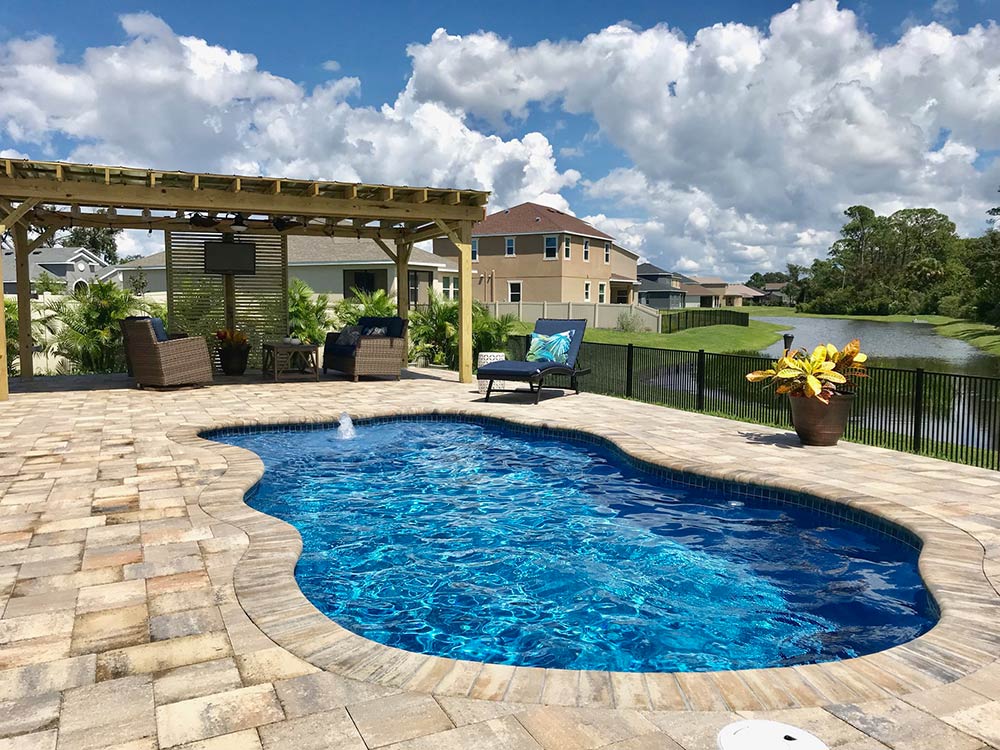
How We Install our Fiberglass Pools in Virginia
Categories
YOU'RE NOT IN THIS ALONE
We are with you every splash of the way
Need a pool fix or looking for an upgrade? We’re just one click away to help with all your pool needs.

